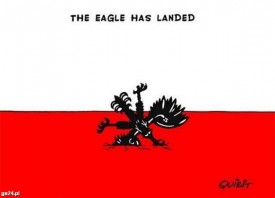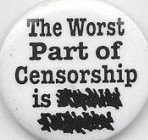Someone once said that comedy is tragedy plus time. According to them, untimely comedy must also be tragic or comedy minus time is tragedy. But the devil is in the numbers. How much time exactly are we talking about? When is it acceptable to laugh after tragedy strikes without seeming insensitive, tactless, disgusting and rude? And why do we even laugh at these situations in the first place?
Gelatology, the super serious study of laughter, has three main theories: relief, superiority, and incongruity. The relief theory argues that people laugh to release tension. The superiority theory says that despite assurances otherwise, people are laughing at you; not with you. According to the superiorists, inferiority is the main source for humour, but it might just be that they are making excuses for their superiority complexes. Lastly, the incongruity theory believes that we laugh because of a surprise – a disparity between our expectations and what actually happens. It is likely that none of these theories alone can explain why we laugh at our favorite jokes. Luckily, we are not interested in all the theoretic reasons behind laughter; only the points where the line between comedy and tragedy gets funny.
When we laugh at tragedies, we alleviate the tension associated with sudden destruction, we negotiate its absurdity, we ease the emotional chaos and we tame the taboo of death. In case of attacks, we often ridicule the perpetrators to defeat the fear and shock of the event. Experts say that humour after tragedy has four phases. First the morbid humour appears, and while it is often inappropriate, it helps us to process the tragic event. Then people experience distractive humour – supposed to draw our attention from the tragedy and reassure us that everything will be OK. Next comes power humour, which works by ridiculing our enemy and calling for revenge thus making us feel stronger and more powerful. Through identifying the villain or the problem, it rationalizes the tragedy. Finally, connective humour expands the perspectives taken into account and even begins to incorporate compassionate attitudes.
The cycle and intensity of humour after a disaster do not work the same for everyone. One person’s tragedy is another person’s evening entertainment on the TV. One person’s snappy T-shirt slogan is another person’s extreme offense. There is a complex and confusing set of cultural values for when “tragic” jokes are “too soon”. Looking for a protocol on when exactly it is OK to joke, I found a helpful list explaining the category of a “too soon joke”: apparently it's too soon if “the corpse is visible from where you are standing” or “wreckage has not completely been removed from the site of the accident”.
A mirthologist (i.e. a humour expert) Steven M. Sultanoff believes that people’s ability to laugh in crisis is conditioned by their distance, proximally, emotionally, and temporally. Logically, the closer someone is to a tragedy, the less likely they are to laugh about it. But it’s a big world. Distance is compounded by the media, by the internet, by nightly news anchors and over-opinionated celebrities. Laughter itself also adds to the distance: when we joke, we create emotional space between ourselves and the tragic event. As comedian Stepehen Colbert put it, “you can't laugh and be afraid at the same time.”
***
Here is how distance works: when we watch the news of a suicide bomb attack in Iraq or Afghanistan, an ethnic conflict in an obscure African country or another flood somewhere in Asia, we become more and more desensitized to the images of horror, death and disaster. When it comes to our own national tragedies though, the emotional distance is not so obvious. When the Polish presidential plane crashed 6 months ago, almost the whole country was plunged in grief. It didn't matter if you were right wing, left wing, or somewhere in between – among 96 victims there were people from the whole political spectrum.
 Photo Gazet van AntwerpenThe mainstream media were all paying tributes to the victims, and for once the political rhetoric of conflict and contempt quieted down. The TV stations started inviting politicians, sociologists, philosophers, shrinks and priests. They would all explain why this is “a special moment for us as a nation” and how we can “cope with the tragedy despite the differences between us”, or simply claimed that “there are no divisions in the face of this great loss”. You would think there is not much to say in a situation like this, but you can't really have a group of breakfast TV guests sitting in silence. So after the media ran out of the moral authorities, it was time for musicians, actors, painters and anyone whose face was known to the public, all fledgling experts on national mourning. It was when I saw a long forgotten 80s soap opera star shedding her tears on an afternoon talk show that I knew we were heading to some kind of pathos overload.
Photo Gazet van AntwerpenThe mainstream media were all paying tributes to the victims, and for once the political rhetoric of conflict and contempt quieted down. The TV stations started inviting politicians, sociologists, philosophers, shrinks and priests. They would all explain why this is “a special moment for us as a nation” and how we can “cope with the tragedy despite the differences between us”, or simply claimed that “there are no divisions in the face of this great loss”. You would think there is not much to say in a situation like this, but you can't really have a group of breakfast TV guests sitting in silence. So after the media ran out of the moral authorities, it was time for musicians, actors, painters and anyone whose face was known to the public, all fledgling experts on national mourning. It was when I saw a long forgotten 80s soap opera star shedding her tears on an afternoon talk show that I knew we were heading to some kind of pathos overload.
 “Soon in your souvenir shop! Little
“Soon in your souvenir shop! Little
black TU-154m pin-ups! Show your
grief!” by pvek.orgIt was a matter of time when the backlash would hit. The proximity of tragedy made us more emotional and sensitive. The storm erupted on Facebook. The thing with Facebook is, it makes your private and public personae mingle. The collisions are unavoidable. In April 2010, it was interesting to observe the actions and reactions: the flame wars and real life friendships breaking. On the very same day (way too soon!) someone created a group “Polish Air-force ... ! whoops! Lech Kaczyński R.I.P” which caused protests and was taken off by the administrators few days later (and has since disappeared and is nowhere to be found). On the next day some bloggers posted lists of Smoleńks Plane Crash jokes with more than 20 items (and morbid they were). A lot of them seemed forced, as if the authors tried a little too hard to be funny, but that's not why readers would get angry. Comments included threats and remarks about author's mother and sister and even accused him of being a pedophile – not sure what it had to do with posting jokes, but apparently it was the most offensive word the critic could think of. Reactions to other people’s reactions and what they found funny (breaking the “too soon” code) was often greater than our reaction in the first place, as if inappropriate jokes made the whole situation more dreadful and tragic.
 “On Monday they found the president's body,
“On Monday they found the president's body,
on Tueasday - his wife's, on Wednesday -
president's head. What will they find
tomorrow???” by pvek.orgListening to the bangs and crashes of people defriending their long time friends makes you wonder: why did people react so strongly? “Tragic” jokes, as any others, are a matter of taste. Some jokers seemed to think that shock value is all it takes to make something funny. Others didn’t necessarily believe that being offensive automatically makes you that. It takes more than a scandal, vicious and nasty words to make some of us laugh. I, for one, never found the ones about deceased president's height amusing (“Why was his body so well preserved? Because he was sitting in a booster seat”), but it could be because I myself am vertically challenged.
***
In case of April 2010 plane crash, the conspiracy theories emerged on the same day. Actually, my news vendor already started spreading doubt about the event only 30 minutes after the media broke the news. He whispered handing me the daily “Why weren’t certain people on that plane?” and went on about who was supposed to be on it but didn't make it. The situation was asking for it: people on the plane were going to commemorate the Katyń massacre, where 70 years ago the Soviets murdered over 20 thousand Poles. We were never good friends with Moscow, and now this accident, in such circumstances, in this place? It’s so obvious. A little too obvious maybe. But doesn't the obvious just make it more suspicious?
It’s no wonder most of the jokes that followed were political. My favorite referred to one of the conspiracy theories that appeared online within hours and abounded for months afterwards. Putin calls the house of parliament and says: “Gentlemen, this can't be! I’m sick of these time zones, someone has to do something about them! I’m calling Pekin to give my birthday wishes, and they tell me it was yesterday. I’m calling Warsaw to give them my condolences, and they tell me the plane hasn’t taken off yet!”
It’s like with Sacha Baron Cohen’s jokes. When Borat makes totally inappropriate racist jokes, anti-racists will laugh at the dumb prejudices and stereotypes. At the same time racists will laugh because someone says out loud something that they knew all along. With the Putin joke, similarly the fans and the opponents of conspiracy theories will laugh alike.
***
After the media spectacle I witnessed earlier this year, I started to wonder whether other nations react similarly to their tragedies. After the 9/11 New York attacks, most media assumed that it's not OK to joke and remained serious for weeks. Comedians like Jay Leno stopped broadcasting their shows as if humour itself had stopped with the attack, TV channels showed stories of heroic fire-fighters, policemen and ordinary people. The dynamics of reactions to the tragedy however, were not only shaped by mainstream media, but also the internet, the great carrier of values. Alt.humour and alt.tasteless.jokes groups’ users raised to the challenge as soon as 2 hours after the attack. Someone published this (not an epic one by any means) post: “What does (WTC) World Trade Centre Stand for? Welcome to Canada - World Terrorist Convention - What? Trade Centre.” Within less than a minute they were called a “sick fuck” and other names and threats. Some stood to the author’s defense and claimed that it’s a natural reaction to what has happened, while others were furious and wouldn’t have it.
During the 7 days of what some call “latent period”, when any attempts at jokes can appear tasteless and insensitive, more people started sending viral mischiefs around. Predictably, some of them were borderline racist statements claiming to be patriotic accounts. It was interesting how Americans’ obsession with political correctness disappeared all of the sudden. In a piece titled “If I Were President George W. Bush's Speech Writer,” published on 14 September 2001, the rhetoric of aggression and contempt was taken to new levels: “Are the turbans on your heads wrapped too tight? Have you gone too long without a bath?... Have you forgotten history? What happened to the last people that started fucking around with us? Remember the little yellow bastards over in Japan? We slapped them all over the Pacific and roasted about 2 million of them in their own back yard.” It seems like this joke became popular because it ridiculed the perpetrators’ inferiority and reinforced the identity of the Americans as invincible – even if (or because), at that particular time, they were everything but.
When people were slowly getting over the shock of the attack, media also started to introduce jokes again. Everyone was still very careful though as to not offend others’ patriotic feelings. Almost everyone. The Onion, whose satire is often politically incorrect and much “too soon” for mainstream media, was at that time little known magazine. On September 26th they published an issue called “Holy Fucking Shit: Attack On America”, which was later praised and even nominated for Pulitzer. It included a handy self-help guide on how to talk to your child about The WTC Attack, where they instruct the parents how to explain the intricate connection between arming Afghanistan by the US during the Cold War and current Talibans and their Holy War. There was also a short news of Bush Sr. Apologizing To Son For Funding Bin Laden In ’80s and of course a piece on Bush junior and his administration – their usual, and easy, target. In the piece the president tries to identify the enemy: “be it Osama bin Laden, Saddam Hussein, the Taliban, a multinational coalition of terrorist organizations, any of a rogue’s gallery of violent Islamic fringe groups, or an entirely different, non-Islamic aggressor we’ve never even heard of”, while senator McCain is reported to be a little confused: "what if the terrorists’ base of operation turns out to be Detroit? Would we declare war on the state of Michigan? I suppose we’d have to."
 Photo by PhilWolff
Photo by PhilWolff
Some rights reservedSome guarded the memory of the tragedy with admirable dedication for a long time. In 2002, a website was set up to protest The Two Towers – the second of Peter’s Jackson’s Lord of The Ring trilogy. The protesters argued that the movie was intentionally being named The Two Towers in order to capitalize on the tragedy of September 11th. They called the movie hate speech, despite the fact that it was titled after a book that was written 47 years before the WTC attack. Could be a hoax. But could also be real. In April 2002, Starbucks was pressured to take off their promotional posters that showed two fruity drinks and a dragonfly flying in their direction. Oh, the slogan read “Collapse into cool”. It was interpreted as “capitalizing on the misfortune of others”. If a picture of 2 frozen colourful drinks could be taken as an offense, I guess so could the title of the book written in the 50s.
In cases like this, you never really know whether it’s the company’s policy to cause some controversy so that everybody is talking about it, or an honest mistake. In Poland for example, 3 months after the plane crash, we found out that it is probably not the best idea to advertise your brew opposite of your deceased president’s burial ground, if his first name happens to be the same as your beer brand name (the case of “Cold Lech” billboard in front of Wawel palace where Kaczyński was buried). The producer said the slogan was not meant to be associated with the president, but we all know how cynical those big companies can get just to get some publicity.
One controversial political opposer of Kaczyński angered the public with a joke shortly after the plane crash. “Why was the person who left for Smoleńsk a midget, an alcoholic and a bigot and the one who came back was a statesman? Because the Russians swapped the bodies”. It plays on the mainstream media spectacle that we witnessed after the crash. Some laughed at the joke, others found it tasteless and rude. But it does show how dangerously close our media and their political correctness paradigm (or shall we say hegemony?) get to Orwell’s Ministry of Truth.








